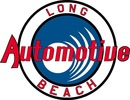FAQs
Move Over Law
A new regulation takes effect today to enhance the safety of emergency workers by requiring drivers to slow down and move over when passing parked emergency vehicles that have their lights flashing. The new Motor Vehicle Act regulation applies to drivers passing police, fire, ambulance and towing vehicles, as well as vehicles used by commercial vehicle safety and enforcement personnel, passenger transportation inspectors, conservation officers, park rangers, and special provincial constables employed in the Ministry of Forests and Range.
Drivers must now slow to 70 km/h on highways where the speed limit is 80 km/h or higher, and to 40 km/h where the limit is below 80 km/h, when approaching a stopped emergency vehicle that has lights flashing. If there is another lane going in the same direction, drivers must also move into that lane if it is safe to do so. Between 2001 and 2007, 21 emergency workers were injured or killed on B.C. roads - 12 of them at the roadside
Can someone other than a registered owner pickup an impounded vehicle?
Yes. If a registered owner is unable to retrieve an impounded vehicle, they have alternatives to allow for a designated individual to act in their place. Please call and ask the dispatch staff during business hours, what these alternatives are. Phone calls providing permission and hand-written notes will not be accepted.
What is fuel surcharge?
A fuel surcharge is a fee that can be added to the freight charges that allows the hauler to be reimbursed for excessive fuel costs incurred in the performance of hauling freight from one point to another. This assessment doesn't require governmental approval and you do not need to file an application with DOT to implement a fuel surcharge. Long Beach Towing chooses to follow by ICBC's fuel surcharge system that is calculated quarterly and helps provide consistency and justification of rates.
Is your vehicle safe in our compound?
Yes. Long Beach Towing has a compound surrounded by barbed wire, commercial grade fencing. Vehicles are all locked and keys are tagged and are placed within a locked room. All trespassers are prosecuted to the fullest extent of the law. Long Beach Towing does it's utmost best to safely secure your belongings.
Are Long Beach Towing employees trained or licensed?
Yes. Long Beach Towing employees are trained through a certification group named Wreckmaster. Visit: www.wreckmaster.com
How are my towing costs calculated?
If you are towed by the RCMP, the rates are regulated throughout the province by ICBC. These rates are provided to towing companies and are annually adjusted. Retail rates include factors that are no different from other businesses. Equipment cost, fuel costs, labor costs, insurance costs, maintenance, dispatch costs and numerous other costs.
More Vehicle Impoundment questions?
Visit the Ministry of Justice website at:
Move Over Law
A new regulation takes effect today to enhance the safety of emergency workers by requiring drivers to slow down and move over when passing parked emergency vehicles that have their lights flashing. The new Motor Vehicle Act regulation applies to drivers passing police, fire, ambulance and towing vehicles, as well as vehicles used by commercial vehicle safety and enforcement personnel, passenger transportation inspectors, conservation officers, park rangers, and special provincial constables employed in the Ministry of Forests and Range.
Drivers must now slow to 70 km/h on highways where the speed limit is 80 km/h or higher, and to 40 km/h where the limit is below 80 km/h, when approaching a stopped emergency vehicle that has lights flashing. If there is another lane going in the same direction, drivers must also move into that lane if it is safe to do so. Between 2001 and 2007, 21 emergency workers were injured or killed on B.C. roads - 12 of them at the roadside
Can someone other than a registered owner pickup an impounded vehicle?
Yes. If a registered owner is unable to retrieve an impounded vehicle, they have alternatives to allow for a designated individual to act in their place. Please call and ask the dispatch staff during business hours, what these alternatives are. Phone calls providing permission and hand-written notes will not be accepted.
What is fuel surcharge?
A fuel surcharge is a fee that can be added to the freight charges that allows the hauler to be reimbursed for excessive fuel costs incurred in the performance of hauling freight from one point to another. This assessment doesn't require governmental approval and you do not need to file an application with DOT to implement a fuel surcharge. Long Beach Towing chooses to follow by ICBC's fuel surcharge system that is calculated quarterly and helps provide consistency and justification of rates.
Is your vehicle safe in our compound?
Yes. Long Beach Towing has a compound surrounded by barbed wire, commercial grade fencing. Vehicles are all locked and keys are tagged and are placed within a locked room. All trespassers are prosecuted to the fullest extent of the law. Long Beach Towing does it's utmost best to safely secure your belongings.
Are Long Beach Towing employees trained or licensed?
Yes. Long Beach Towing employees are trained through a certification group named Wreckmaster. Visit: www.wreckmaster.com
How are my towing costs calculated?
If you are towed by the RCMP, the rates are regulated throughout the province by ICBC. These rates are provided to towing companies and are annually adjusted. Retail rates include factors that are no different from other businesses. Equipment cost, fuel costs, labor costs, insurance costs, maintenance, dispatch costs and numerous other costs.
More Vehicle Impoundment questions?
Visit the Ministry of Justice website at:
